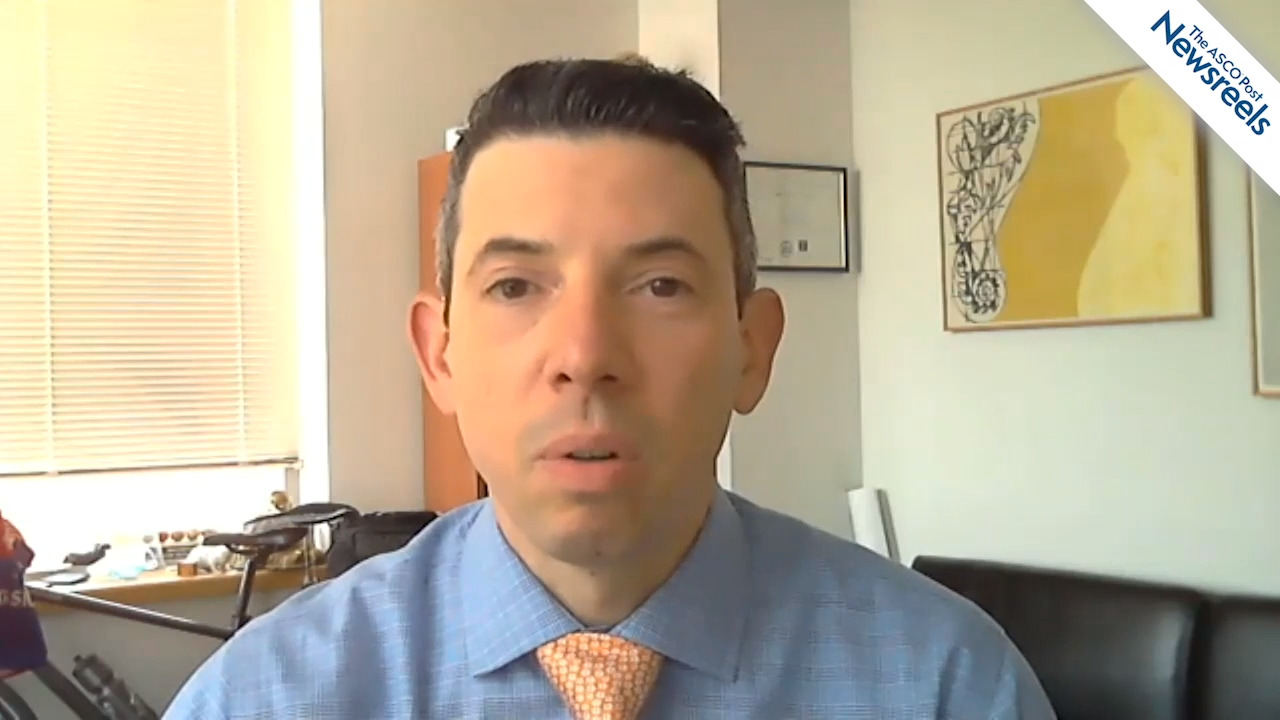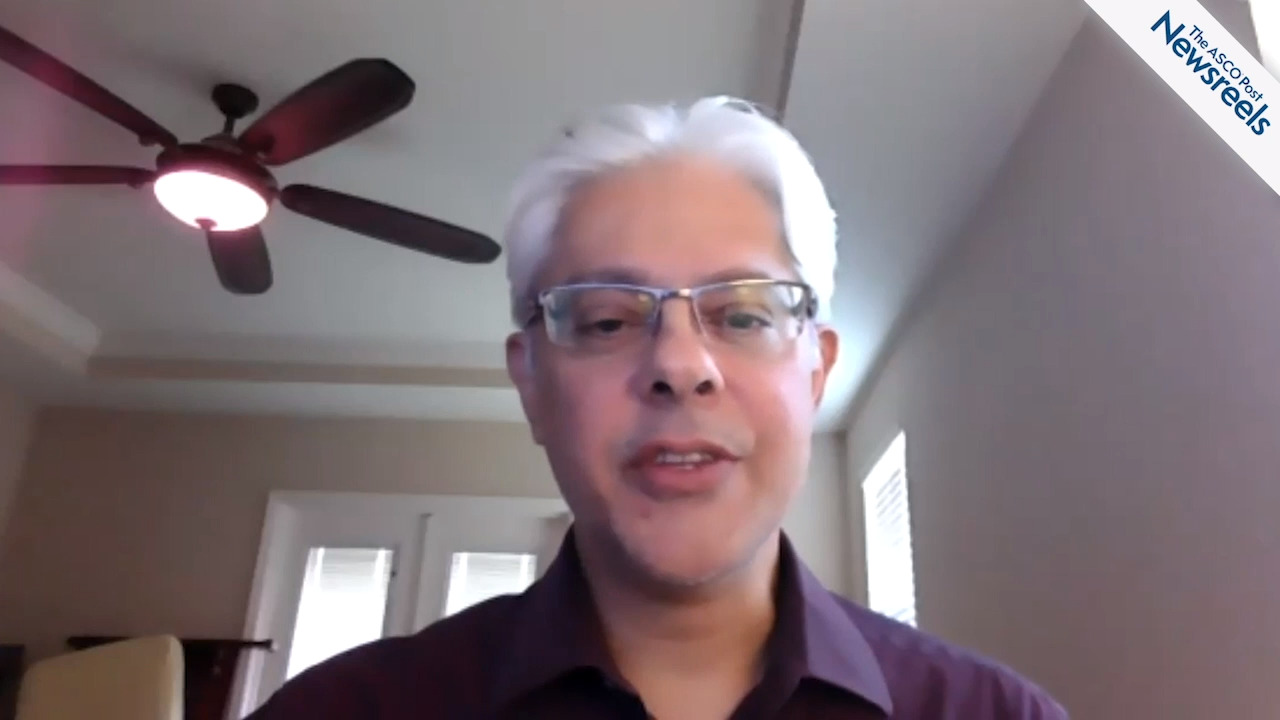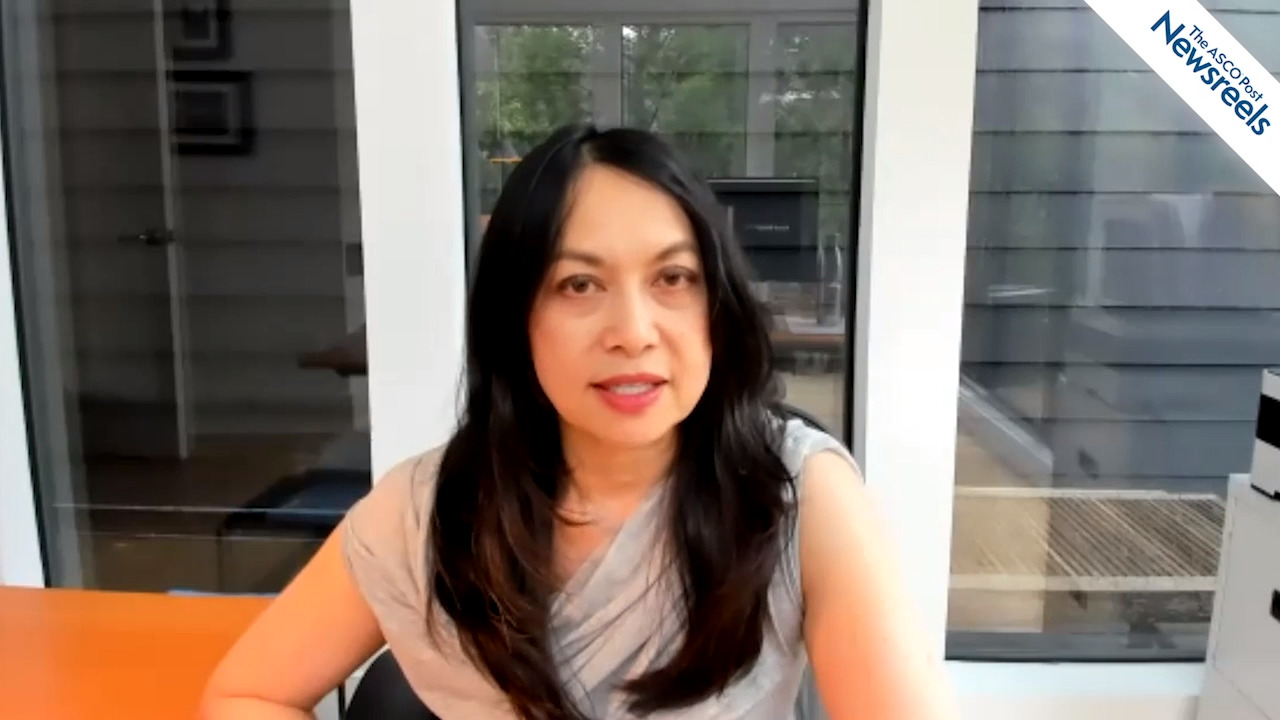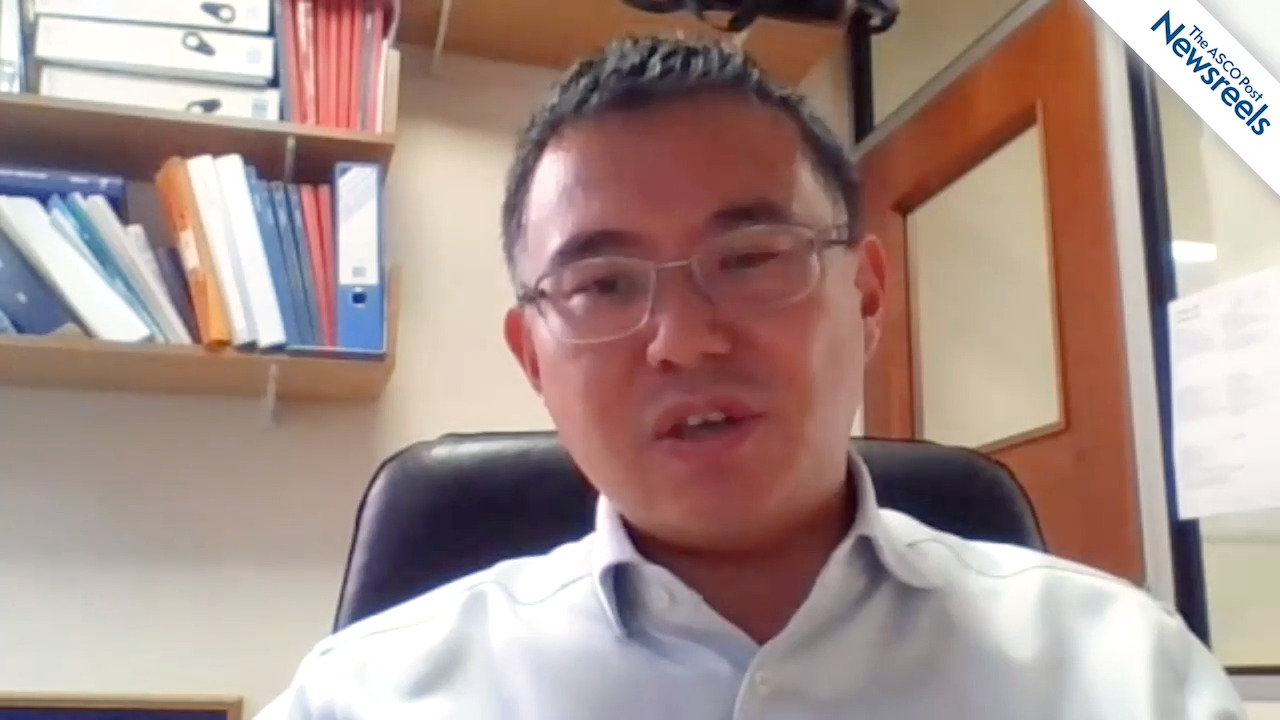Nadia Harbeck, MD, PhD, on Early Breast Cancer: Benefit of a De-escalated Regimen
2021 ASCO Annual Meeting
Nadia Harbeck, MD, PhD, of Ludwig Maximilian University of Munich, discusses results from the ADAPT HR–/HER2+ trial, which showed, for the first time, improved pathologic complete response and survival in patients with early breast cancer who were treated weekly with a de-escalated 12-week regimen of neoadjuvant paclitaxel plus pertuzumab and trastuzumab (Abstract 503).
The ASCO Post Staff
Evan J. Lipson, MD, of Johns Hopkins University, discusses primary phase III results from the RELATIVITY-047 study, which showed that relatlimab plus nivolumab as a fixed-dose combination may improve progression-free survival compared with nivolumab monotherapy in patients with advanced melanoma. This is the first study to demonstrate a benefit from dual inhibition of the LAG-3 and PD-1 pathways.
The ASCO Post Staff
Neeraj Agarwal, MD, of Huntsman Cancer Institute at the University of Utah, discusses phase III data from the SWOG S1216 trial, which evaluated the clinical benefit of using androgen-deprivation therapy with either orteronel (or TAK-700, a CYP17 inhibitor) or bicalutamide in patients with newly diagnosed metastatic hormone-sensitive prostate cancer (Abstract 5001).
The ASCO Post Staff
Bijal D. Shah, MD, of the H. Lee Moffitt Cancer Center, discusses phase II results of the ZUMA-3 study, which evaluated brexucabtagene autoleucel (KTE-X19), an anti-CD19 CAR T-cell therapy, in adults with relapsed or refractory B-cell acute lymphoblastic leukemia (Abstract 7002).
The ASCO Post Staff
Cathy Eng, MD, of Vanderbilt-Ingram Cancer Center, discusses two abstracts from a session she co-chaired: the phase II DEEPER trial, which explored the use of FOLFOXIRI plus cetuximab vs FOLFOXIRI plus bevacizumab as first-line treatment in metastatic colorectal cancer with RAS wild-type tumors; and the phase II FIRE-4.5 study, which investigated FOLFOXIRI plus either bevacizumab or cetuximab as first-line treatment of BRAF V600E–mutant advanced disease (Abstracts 3501 and 3502).
The ASCO Post Staff
Ian Chau, MD, of Royal Marsden NHS Foundation Trust, discusses first results of the CheckMate 648 study, which showed that nivolumab plus chemotherapy and nivolumab plus ipilimumab both demonstrated superior overall survival vs chemotherapy alone in patients with advanced esophageal squamous cell carcinoma. These regimens may represent potential new first-line treatment options (Abstract 4001).





